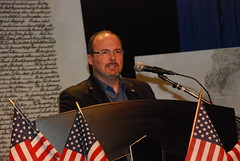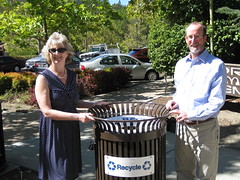May help resolve long-term credit rating issues
by Brian Leubitz
S&P has never had much faith in the California legislature. Even after the majority vote budget amendment passed, and after Prop 30’s additional revenues, S&P never really had faith.
Earlier this week, in a memorandum supportive of a budget reserve, the Wall Street credit-rating agency Standard & Poor’s said that “when it comes to reaching a legislative supermajority on fiscal matters, California has a weak track record,” raising concerns about the possibility that Brown and lawmakers might fail to reach an accord.
S&P called the negotiation “a test of sorts for the state,” adding that “if the Legislature succeeds in assembling the consensus necessary to move the measure forward, it could mark another step in California’s ongoing journey toward a more sustainable fiscal structure.”(SacBee / David Siders)
Now, despite voters continually supporting revenue and large Democratic majorities, the late 2000s budget fights never really went away. Sure, the players are completely different, but that kind of madness leaves a mark. Yes, we’ve made wholesale reforms to the system, we’ve never actually missed any debt payments, and we have a constitutional requirement to pay debt before anything (save Prop 98 requirements). But, the credit bureaus like to see reforms that make them and their Wall St. friends happy.
That brings us back to the rainy day fund. California has always struggled with boom-bust cycles, and the idea was to stash away some of that boom money to spend during the busts. In general a good concept, but the very ominous devil is in the details. And with the recent indictments and subsequent suspensions, the Senate Republicans are relevant again. But, Brown’s framework brought a little bit of something for everyone to build off, and today we get this:
But on Thursday, following several weeks of private negotiations, Brown and the legislative leaders of both parties announced an agreement on a proposal to set aside 1.5 percent of total general fund revenue every year, plus revenue from capital-gains taxes when the economy is especially robust. (SacBee / David Siders)
Republicans get their rainy day fund and something to list as an accomplishment. (Giving them an extensive list of…1 accomplishment). Steinberg and the Senate Democrats got a commitment to use half of the 1.5% to pay down debt, rather than having to argue that issue later in the budget fight. That could have been a huge problem down the road, and the inclusion here is a big victory for Steinberg and could be enough to get a much broader base of support.





 Sugary beverage warning stalled over $400,000 bill
Sugary beverage warning stalled over $400,000 bill